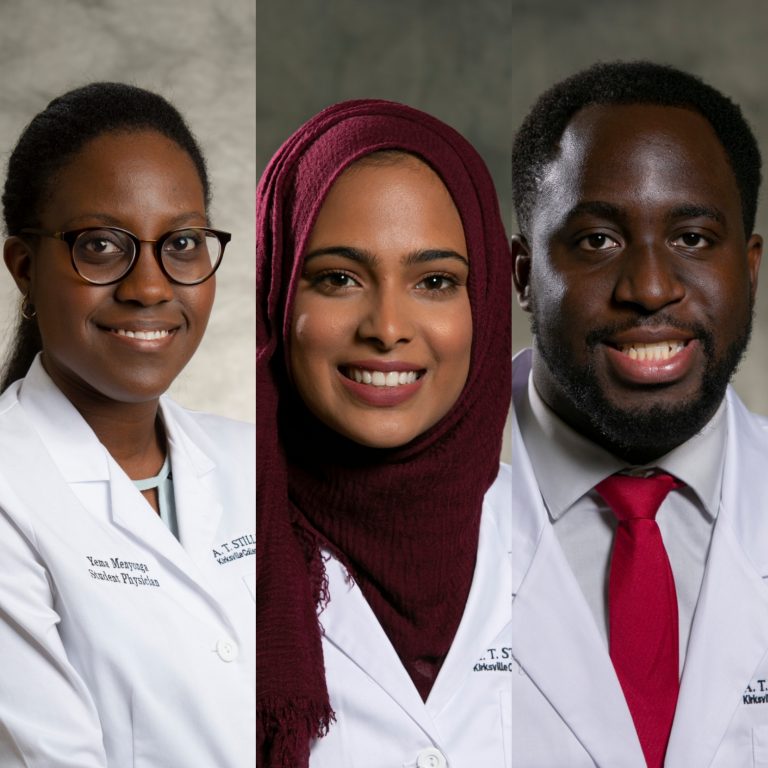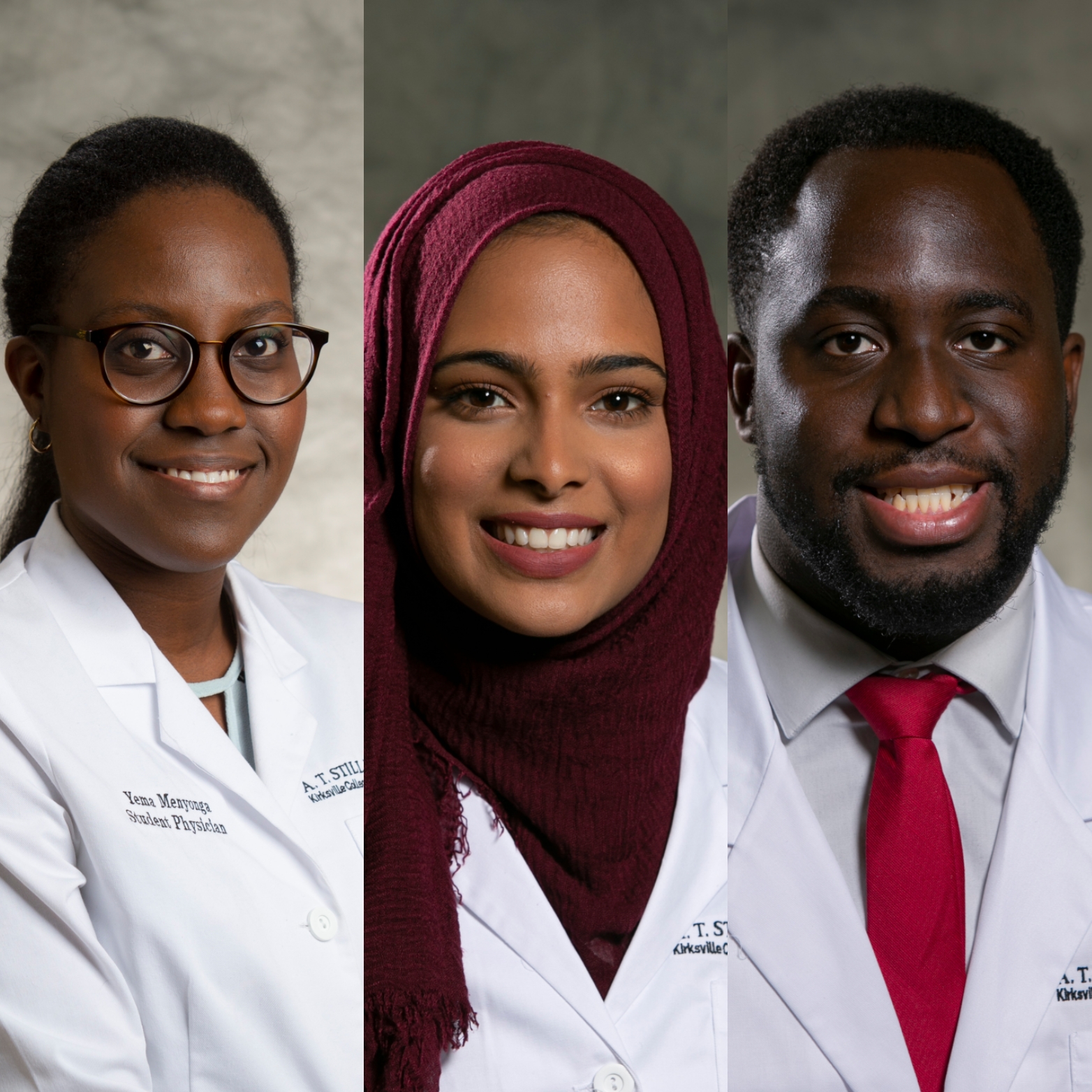SGA hosts forum on racism and implicit bias
Posted: August 21, 2020
Thinking twice about wearing a hoodie at night. Having your natural hair judged as unprofessional. People assuming the way you dress is a signal of oppression.
These are just some of the stories shared by a trio of A.T. Still University-Kirksville College of Osteopathic Medicine (ATSU-KCOM) students during a Student Government Association forum, “Racism & Implicit Bias: Continuing the Discussion,” held virtually on Wednesday.
The students shared their experiences with hopes of increasing understanding and awareness of attitudes or stereotypes one may have, even subconsciously.
Yema Menyonga, ATSU-KCOM medical education fellow from Miami, served as one of the student speakers.
“Having racist or discriminatory beliefs or ideas can be subconscious,” she said. “They’re not always active. They’re not always so in your face and blatant, and they don’t always have to seem as aggressive as what comes to mind when we hear the word ‘racism.’”
Samah Raheem, OMS II, described her experiences as a Muslim woman growing up in the Chicago suburbs. At age 15, she made a choice to wear a hijab because of what it meant to her.
“It basically represents modesty and people basing how they see you on your ideas or your character, not so much your appearance. To me, I thought that was a beautiful principle, which is why I chose to wear the scarf,” she said.
She recalled a time at work when her co-workers told her she should feel free to remove it in their presence, that they would protect her secret. They assumed it was forced upon her, not a choice she made as part of practicing her faith.
Raheem said there are 1.9 billion Muslims in the world, and like any religion, the ways in which people practice their faith can vary widely.
“Everyone is different,” she said.
Michael Megafu, OMS II, grew up in a Brooklyn neighborhood known for gangs and violence, and recalled being stopped by police while doing nothing more than walking down a street.
When he plans to head out at night, Megafu said, he thinks twice about grabbing a hoodie, knowing a simple clothing choice could lead some to view him as a threat.
Megafu noted African Americans make up a small percentage of physicians, and African American males an even smaller percentage.
“Unfortunately, they don’t have the opportunities that others, like myself, have had,” he said.
He urged people to be more aware of implicit bias and the role it can play in those opportunities.
Forum moderator Stephanie McGrew, MA, ATSU Office of Diversity & Inclusion coordinator, said having these conversations will help all ATSU students now and in the future.
“It’s great that your classmates know how you feel and know the experiences that you’ve been through,” McGrew said. “That’s going to help them be able to relate and be able to change that for hopefully other fellow classmates or anyone they work with in the future.”
